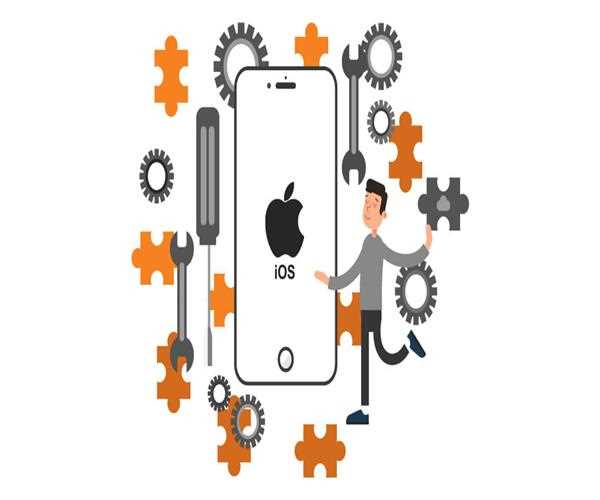
09-Feb-2024 , Updated on 2/11/2024 7:18:15 PM
Best iOS App Development Programming Languages 2024
Are you developing your skills as an iOS app developer or a company whose business is to create iOS apps? The swiftly changing world of technology demands that one must use the latest programming languages to make their app unique which is the key to its success in the competitive market. This comprehensive guide will take you through the best programming languages for 2024 iOS app development, giving you details on their features, benefits, and appropriateness for different types of projects.
Let us understand the importance of iOS app development in this digital world first. With over 1 billion iOS users worldwide and a booming market, creating good quality, user-friendly apps for Apple devices is an absolute must for businesses to reach their target audience.
What Coding Language to choose?
Choosing the appropriate programming language is the bedrock of any successful app development venture. It assures the app's functionality, expandability, and interoperability with devices from the Apple line. In 2024, developers are spoilt for choice as each option offers unique features and capabilities fit for specific project needs.
iOS App Development Top Languages
1. Swift:
- Description: Swift keeps the throne of the best programming language to develop iOS apps in 2024. Pledged to its pace, security, and modern syntax, Swift provides a developer with amazing tools to build strong apps for iPhones, iPads, and other Apple gadgets.
- Features:
- Flexible, strong, and user-friendly.
- Provides Automatic Reference Counting (ARC) for memory management efficiency.
- Rephrasing and readability in syntax.
- Includes modern features beloved by the developers.
- Blazing-fast and secure by default.
2. C#:
- Description: Developed by Microsoft, C# has become a versatile programming language for iOS native app development, especially with the integration of Xamarin technology. Thanks to its powerful object-oriented programming, memory management mechanisms, and cross-platform capabilities, C# allows developers to create powerful apps for iOS using the Xamarin platform.
- Features:
- Bringing together both of them.
- Firmly backing object-oriented programming.
- Cross-platform compatibility within Xamarin technology.
- Handles low-level memory allocation.
- Integrates different programming languages.
3. Objective-C:
- Description: Although Swift has taken off in recent years Objective-C is an ongoing and widely used language for iOS app development, particularly in projects with existing codebases or legacy systems. Objective-C offers a wide range of features as well as smooth integration with Apple’s frameworks that facilitates the development of smart iOS applications making use of already available tools.
- Features:
- Easily integrates with Apple's frameworks.
- Rich feature set to build powerful apps.
- An effectively used choice among the iOS existing projects or older systems.
- For high-performance compiler accompanied the hardware acceleration.
- Has automatic memory management.
4. Flutter:
- Description: Powered by Google's Dart language, Flutter's created a go-to solution for cross-platform app development, including iOS. With its quick compile times, hot reload capability, and responsive layout support, Flutter allows developers to build visually attractive and performant apps that run effortlessly on both iOS and Android devices.
- Features:
- Quick compilation time without trading off code quality.
- Consistently renders on both Android and iOS mobile devices.
- Components-based architecture for code reusability.
- Uses Google's Dart programming language
- Supports responsive layouts for appealing apps.
5. React Native:
- Description: Facebook bringing React Native presents an inspiring approach for programming native iOS apps with JavaScript and the React.js library. React Native with its component-based architecture as well as code reusability simplifies the app development process and speeds up time-to-market for iOS applications.
- Features:
- Writes native cross-platform mobile apps with JavaScript.
- Component-based architecture which allows code reuse.
- Makes app development easy with React.js
- On responsiveness and performance.
- Shortens time to market for iOS apps.
6. HTML5:
- Description: HTML5, however, is mainly used for web development purposes; it can also be plied for generating hybrid iOS apps involving Web view. Having multimedia, offline storage, as well as cross-platform compatibility, HTML5 allows you to build engaging and interactive iOS apps with relative ease.
- Features:
- Capabilities are for multimedia support of applications.
- Instant compatibility across platforms for hybrid iOS apps.
- Plentiful amount of libraries and tools.
- Seamless user experience utilizing offline storage support.
- Makes web development simpler without server-side languages.
7. Java:
- Description: Quite often associated with Android app development, Java can be additionally used for iOS app development by way of cross-platform frameworks e.g. Codename One. Underpinned by its impressive performance, platform independence, and a large collection of libraries and tools, Java is an option to consider for developers targeting both iOS and Android with a single codebase.
- Features:
- Object-oriented and platform-independent.
- Robustness with implementation dependencies to be minimized.
- Ecosystem of libraries and tools spanning a wide area
- Supports cross-platform development with Codename One.
- Plausible choice for simultaneous targeting of iOS and Android platforms.
In conclusion, in 2024, choosing the appropriate programming language will be crucial for those creating iOS apps. Whether you're using Swift to create a native iOS app or looking at cross-platform choices like Flutter or React Native, each programming language has advantages and features that are specific to your project. Developers may design creative, high-caliber iOS apps that satisfy the needs of modern customers by knowing the advantages and characteristics of each language.

Content writer
I am a content writter !
Join Our Newsletter
Subscribe to our newsletter to receive emails about new views posts, releases and updates.
Copyright 2010 - 2026 MindStick Software Pvt. Ltd. All Rights Reserved Privacy Policy | Terms & Conditions | Cookie Policy